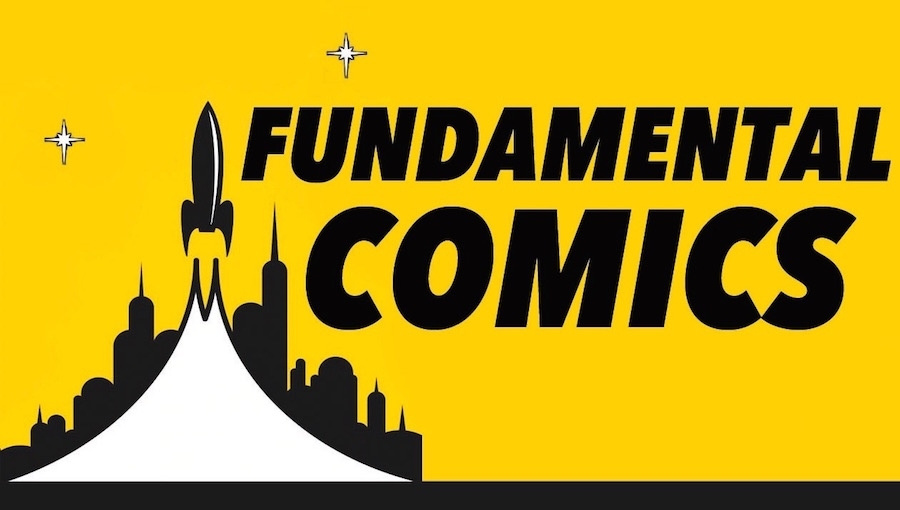In the past, my interaction with comics had been limited. As a child, I read Casper and Richie Rich for a brief period of time to overcome reading challenges I was experiencing, but, once my reading improved, I was off reading books, and comics became a distant memory rather than an integral part of childhood experience; however, working with comics over the past handful of years, I came to the realization that as a (film) historian, it had become my passion to better understand the intricacies of this visual medium, its history, and its impact on popular culture. Why? Because I wanted to engage with sequential art as a more informed and well-read individual.
It was about two years ago, as I was looking at “top” lists of influential comics, that I noticed how often I was seeing the same titles over and over – obviously, a testament to their importance. I thought about the stories that were not represented, yet were still impactful to the medium. I knew that the history of comics was a complex one, presenting an incredibly rich tapestry of narratives and artistic styles, some familiar, but so many others, less so. It was this revelation that was the catalyst for the “Fundamental Comics” series at Fanbase Press.
Launched as a monthly editorial series to introduce readers to comics, graphic novels, and manga that have been impactful to the sequential art medium and the comic book industry on a foundational level, this series would honor comics past, present, and yet to come. Naively, I hoped that this series would inspire and rejuvenate interest in comics. In fact, interest in comics is alive and well and inspiring many superhero films! In hindsight, I would clarify that I would hope that “Fundamental Comics” would inspire readers to seek out and read unfamiliar titles that are impactful and speak to significant themes that are making crucial strides to understand ourselves and our world.
The essays that made up this year’s series would seem an eclectic group of titles:
Kevin Wetmore ushered in “Fundamental Comics” with Neil Gaiman’s The Sandman: Preludes & Nocturnes and the Rise of Modern Classicism in Graphic Literature and Realistic Myths in Comics.
Carl Wilson explored the Alien IP with Back to Earth for Ripley, Newt, and Hicks in the Aliens Trilogy: Outbreak, Nightmare Asylum, and Earth War and the Study of Humanity.
S.T. Lakata delved into Monstress and Finding Ways to Live in a World of Inequality and Hate.
Phillip Kelly explored Fear and Fanaticism in Bone.
Claire Thorne analyzed Mouse Guard and Finding Bravery in Unexpected Places.
Kevin Wetmore entered Alan Moore’s Watchmen and Broken Heroes & Broken Narratives.
I traveled to the Middle East with G. Willow Wilson Creates Modern Muslim Identity with Cairo.
Looking more closely at each of the seven essays, some important revelations were revealed:
- None of the comics this year featured any caped superheroes.
- All titles this year focused on non-traditional heroes, often an anti-hero or the “everyday” common man, woman, or animal.
- Animal comics featured in two essays and parallels the growing focus of animal representation studies in comics.
- Influential female creators were spotlighted in two essays.
- Male characters continued to drive most narratives; however, there were efforts to divert focus from a central male character to the ensemble cast.
- The stories and characters challenged established stereotypes that were limiting and demeaning.
- Interestingly, the one well-established IP covered this year was the enduring sci-fi horror franchise, Alien.
- Although there is much adversity in the world, there exists hope for change.
These are just some of the observations in which the titles presented this year challenged the hegemony of our society. Before moving on, I want to express my heartfelt thanks to all of the writers who contributed to this year’s series, because each provided insight and critically analyzed important themes.
What can readers expect in 2020? My goals include:
- Continued exploration of titles focusing on non-traditional heroes
- More diversity among the main characters
- Narrative stories that explore political and societal issues
- Inclusion of foreign titles that illuminate lesser-known (portrayed) cultures
- Manga
- Comic titles from earlier decades and “Ages” of comics
In closing, if you have not been following Fundamental Comics, I hope that you will check out one, some, or all of the essays from this year. New essays post on the last Wednesday of the month.

